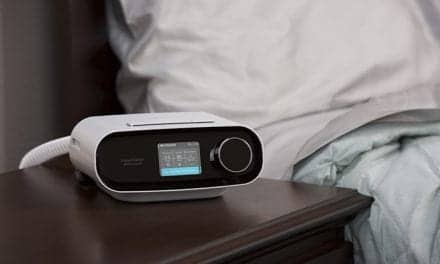West Virginia University (WVU) Medicine otolaryngologists Steven Coutras, MD, and Rusha Patel, MD, performed the state’s first robotic tongue base volume reduction procedure to treat a patient with obstructive sleep apnea (OSA). This procedure is available to patients who have not had success with other sleep apnea interventions.
“Robotic surgery allows us to treat patients who may not be candidates for the traditional approach for a variety of reasons,” Coutras says in a release. “OSA has a significant impact on the lives of our patients, and this treatment can lead to improvements in their ability to breathe, swallow, eat, and sleep.”
Because nocturnal airway collapse in OSA often involves obstruction at the tongue base, transoral robotic surgery (TORS) can be used to treat moderate to severe OSA. Candidates for this procedure have significant obstruction at the tongue base as determined by awake endoscopic exam or by drug-induced sleep endoscopy and do not have retrusive jaw, an inability to extend the neck, or limited ability to open the mouth.
Robotic surgery provides the surgeons with a better view of the tongue base than is allowed by a traditional approach. This allows for increased precision and better access, making sleep apnea surgery available to patients who may not be candidates for the traditional approach.
Robotic surgery cannot be offered to patients who are tolerant of and compliant with continuous positive airway pressure, or CPAP, therapy. TORS tongue base surgery can be offered to CPAP non-adherent patients as a primary procedure or after previous surgery failure when the anatomy is appropriate.
“There are many reasons why CPAP therapy would not be successful for patients,” Patel says. “For select patients, removing bulk from the base of the tongue can address the anatomical cause of the problem.”
Patients who receive surgery to reduce the tongue base may temporarily experience numbness or difficulty swallowing, but these symptoms typically resolve with time.
The first patient underwent surgery in August and reports a significant improvement in well-being, including better sleep, improved ability to breathe, and a better ability to talk and sing. She is scheduled for a post-operative sleep study.



